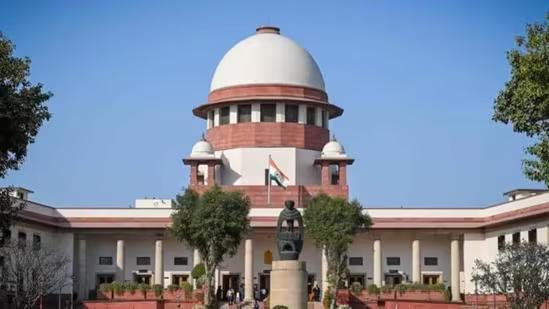
Court can’t grant assent to bills, only Guv & Prez can: Maha to SC
In a significant development, the Maharashtra government has argued in the Supreme Court that courts cannot accord assent to bills and only the Governor and President have the power to do so. This statement was made by Senior Advocate Harish Salve, representing Maharashtra, during a hearing on a presidential reference regarding whether the court could impose timelines for the Governor and President to deal with bills passed by state assemblies.
The presidential reference was filed by the Centre after the Maharashtra government sought the court’s guidance on the issue. The reference was made to resolve the controversy surrounding the Governor’s power to give assent to bills passed by the state assembly. The Centre’s reference asked the court to clarify whether the Governor was bound by the timelines set by the court or not.
In his submission, Harish Salve argued that the Governor and President have the constitutional power to accord assent to bills and that the court cannot usurp this power. He contended that the court’s role is limited to reviewing the constitutional validity of a law, but not to grant assent to it.
Salve further emphasized that the Constitution has clearly divided the powers between the legislative, executive, and judicial branches, and that each branch has its own defined role. He argued that the court cannot interfere with the exercise of the Governor’s or President’s powers and that any attempt to do so would amount to an encroachment on the constitutional boundaries.
The Maharashtra government’s argument is based on the principle of separation of powers, which is a fundamental concept in the Indian Constitution. The principle of separation of powers ensures that each branch of government has its own distinct powers and responsibilities, and that no branch can exercise the powers of another.
In recent years, there have been instances where the Governor has refused to give assent to bills passed by the state assembly, citing constitutional or other grounds. This has led to controversy and confusion, with the opposition parties demanding that the Governor be bound by the timelines set by the court. However, the Maharashtra government’s argument is that the Governor’s power to give assent is not subject to court supervision and that the court cannot impose timelines on the Governor’s actions.
The hearing on the presidential reference is significant because it has implications for the functioning of state governments and the relationship between the legislative and executive branches. The Maharashtra government’s argument has far-reaching consequences, as it could affect the way bills are passed and implemented in the future.
The Supreme Court’s decision on this matter is expected to have significant implications for the functioning of state governments and the relationship between the legislative and executive branches. The court’s decision could clarify the powers of the Governor and President in relation to bills passed by the state assembly and may also have implications for the way bills are passed and implemented in the future.
In conclusion, the Maharashtra government’s argument that courts cannot accord assent to bills and only the Governor and President have the power to do so is a significant development in the ongoing controversy surrounding the Governor’s power to give assent to bills passed by the state assembly. The Supreme Court’s decision in this matter is expected to have significant implications for the functioning of state governments and the relationship between the legislative and executive branches.






